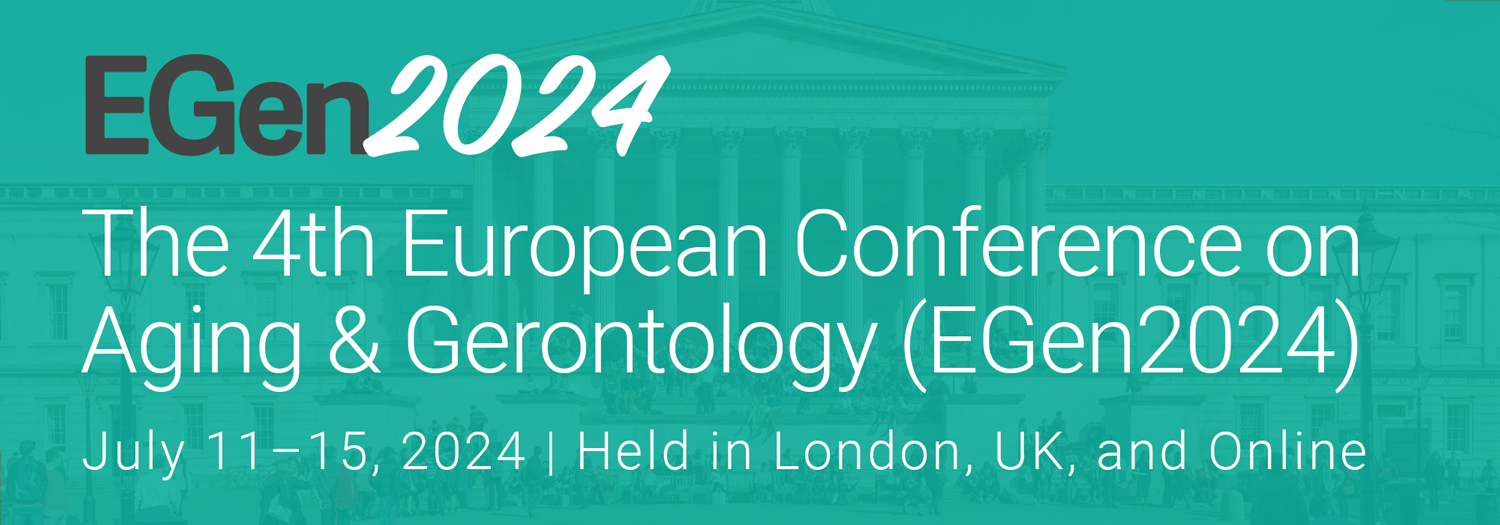The European Conference on Aging & Gerontology (EGen) is run in partnership with The Bartlett Real Estate Institute at UCL, The National Archive of Computerized Data on Aging (NACDA) at the University of Michigan, USA, and the IAFOR Research Centre at Osaka University, Japan.
The growth of the aged population has been an issue of interest for almost 40 years. The aged have been referred to as an epidemic, a tidal wave and as a crisis. There is no specific reason why any of these polemics is an effective description of the aging transition. The growth of the world’s population over the age of 60 is merely the natural outcome of reducing mortality, particularly childhood mortality. While this population momentum has built up over time it has never been a “tidal wave” – merely the expected and predictable result of improved worldwide health. It is only a crisis in so much as governments and policy makers have chosen to ignore these obvious changes in their respective populations. Like any issue, you can transform a process into a crisis by the simple act of ignoring its existence.
This multidisciplinary conference examines international issues relating to the aging population worldwide.
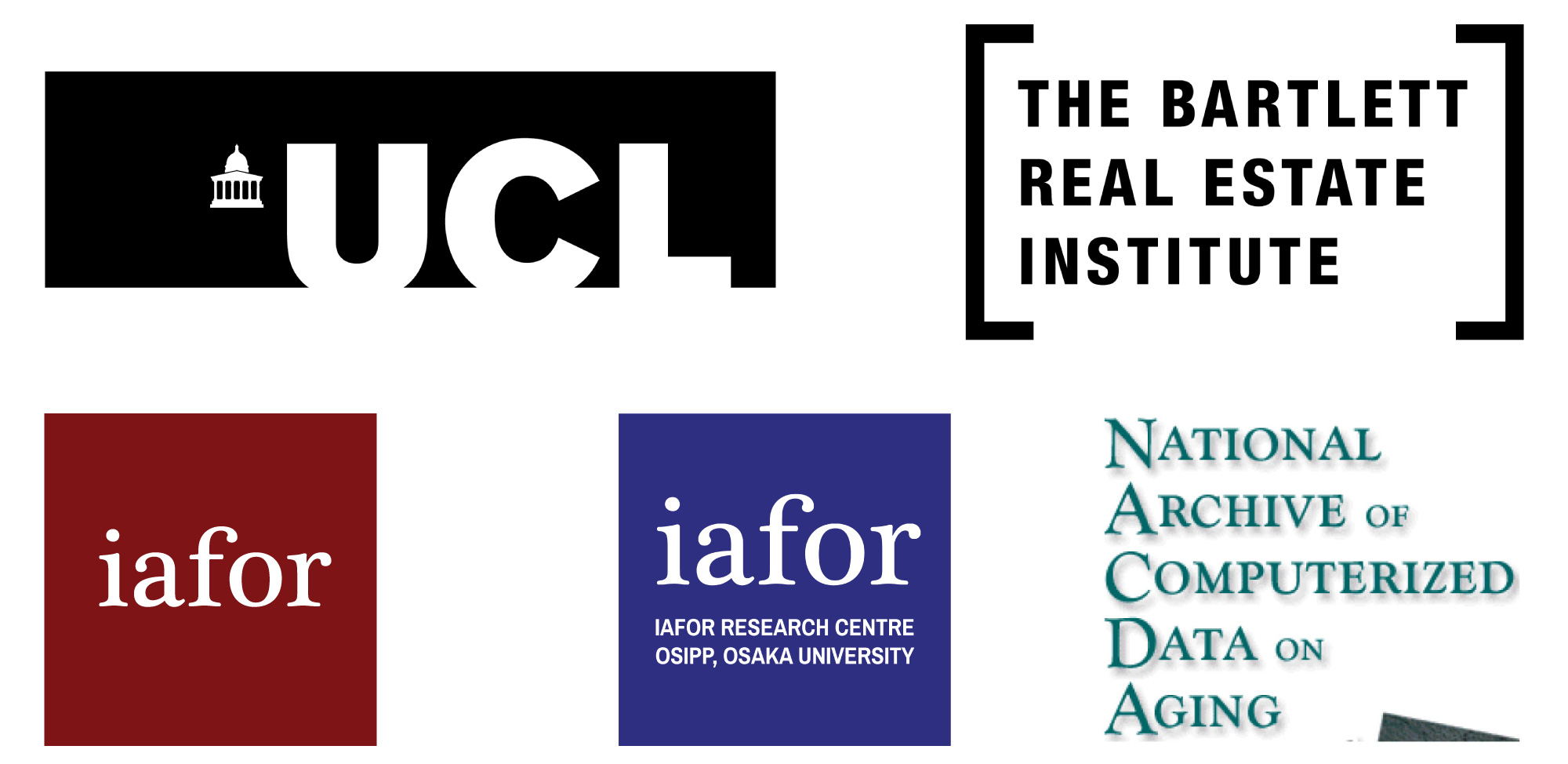
EGen Conference Photos (2019)
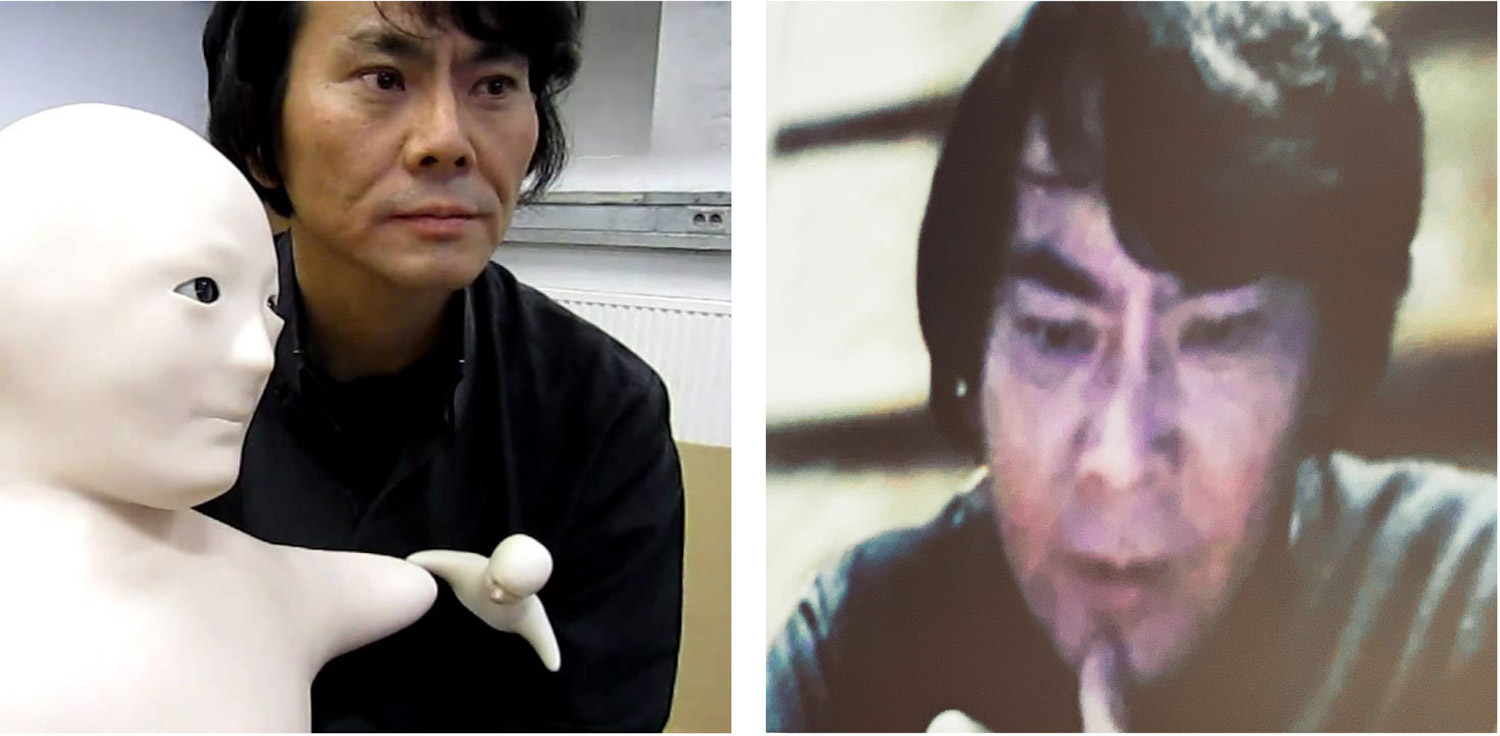
Above: Professor Hiroshi Ishiguro, from Osaka University and Hiroshi Ishiguro Laboratories (Japan), delivers a Keynote Presentation via video. Professor Ishiguro discussed his ground-breaking work in robotics and artificial intelligence and the implications this research has for ageing populations.
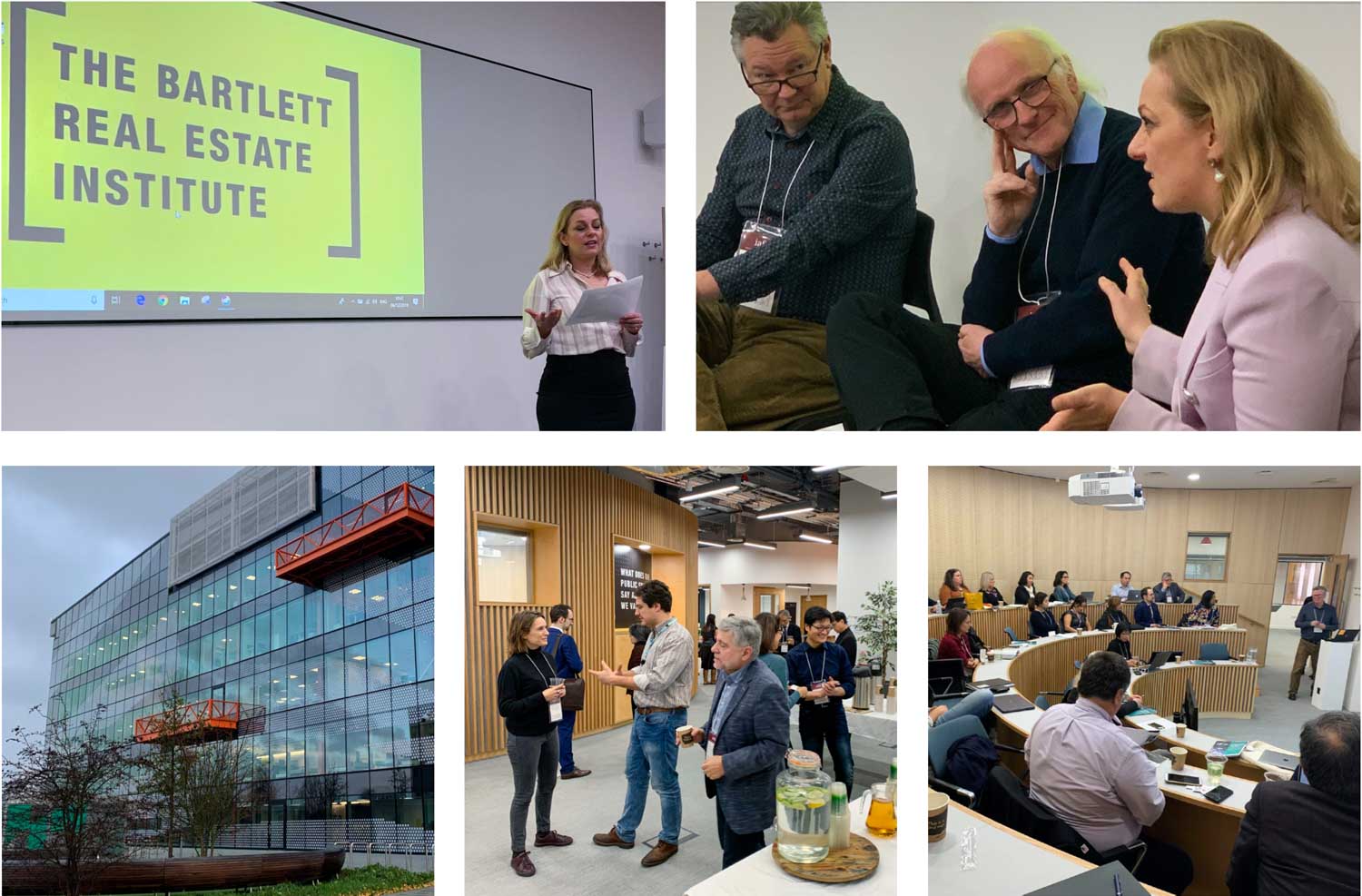
Above, clockwise from top left: Dr Evangelia Chrysikou, from the host university, University College London (UK) welcomes delegates to IAFOR’s first annual European Conference on Aging & Gerontology. Dr Chrysikou moderates the Keynote Panel featuring Professor Paul Higgs (left) and Professor Nick Tyler, both from University College London (UK), as they discuss the issues raised throughout the plenary day and tie together the common themes of the conference. Professor Higgs delivers his Keynote Presentation, titled “The Challenge of the Fourth Age for Ageing Societies”, in which he explores growing disparities in how different sectors of the population face ageing. Delegates enjoy one of the many networking opportunities provided by the conference, discussing the day’s presentations, as well as their own research interests. The Bartlett Real Estate Institute (BREI) at University College London was a fantastic venue for the event.
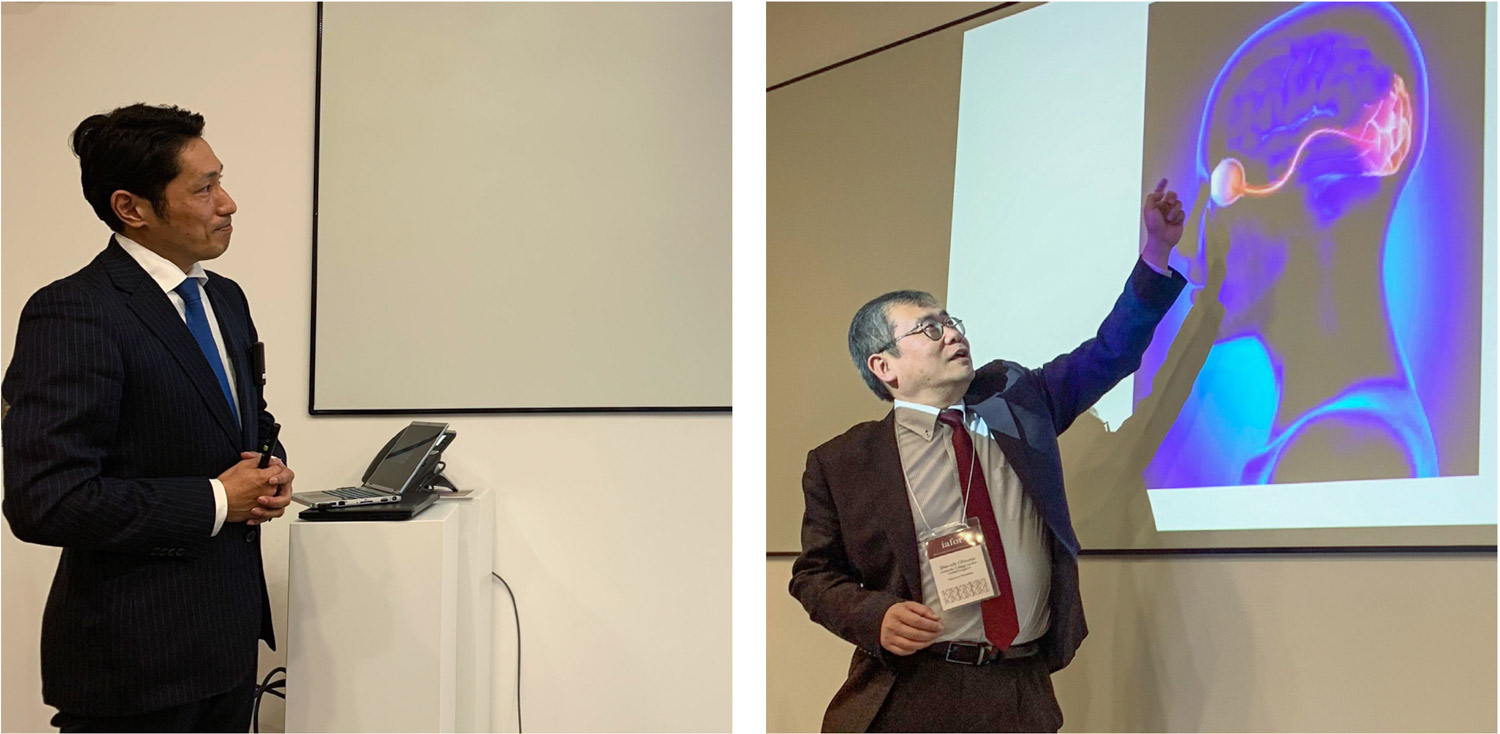
Above left: Professor Tsuyoshi Sekitani, from Osaka University (Japan), takes questions following his Keynote Presentation, “Imperceptible Brain Monitoring System -Patch EEG-”, in which he explains cutting-edge technology in brain monitoring. Above right: Professor Shin-ichi Ohnuma, of University College London (UK), offers comments on the connections between UCL and Osaka University, and how British researchers are contributing to Japan’s attempts to face the issues of an ageing population.
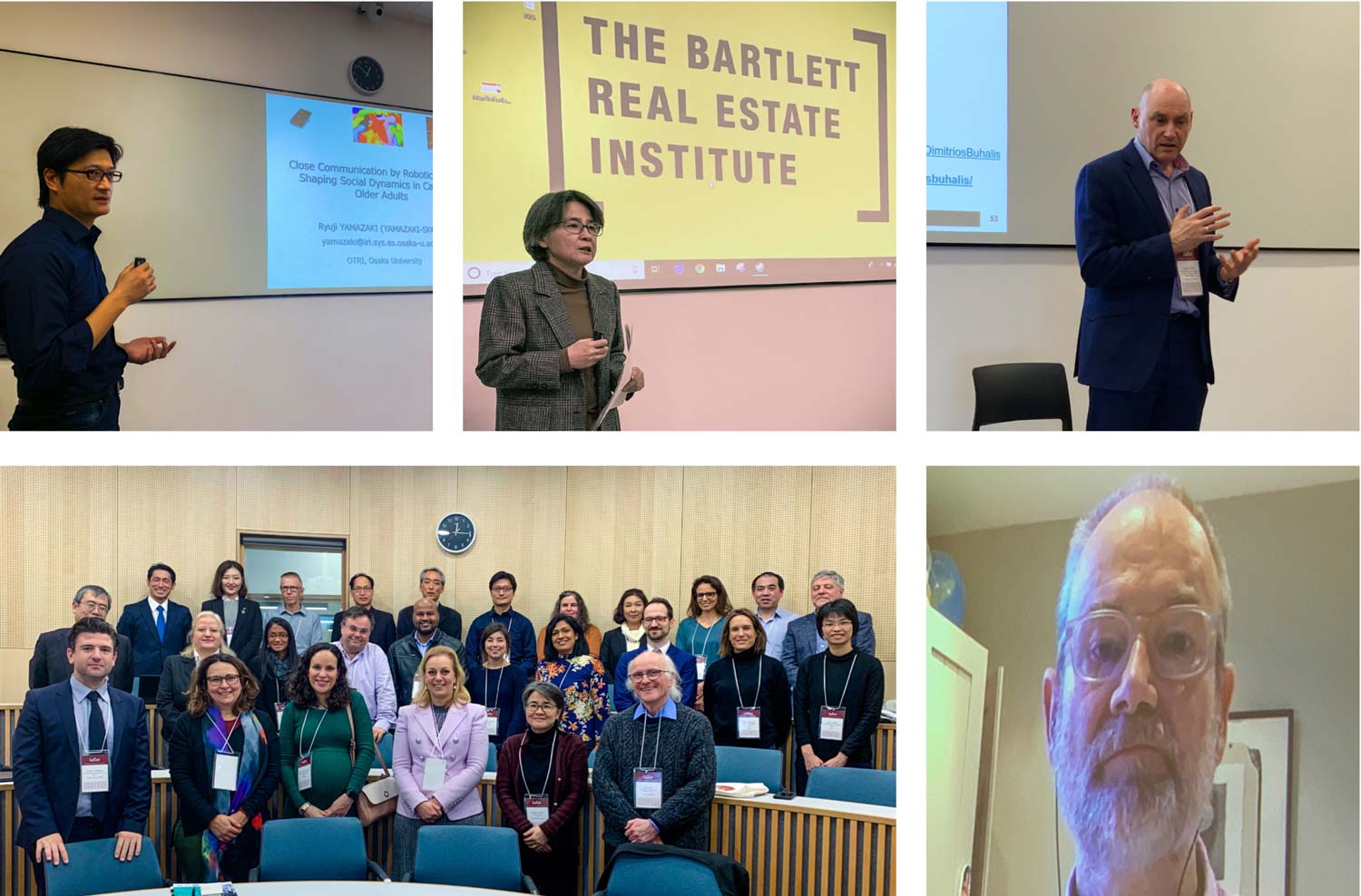
Above, clockwise from top left: Dr Ryuji Yamazaki, from Osaka University and Hiroshi Ishiguro Laboratories (Japan) joined the event on behalf of Professor Ishiguro, and is seen here adding to the video address from Professor Ishiguro. Professor Haruko Satoh, of Osaka University (JAPAN), welcomes delegates on behalf of Osaka University and IAFOR. Professor Andrew Edkins, Bartlett Real Estate Institute, welcomes delegates on behalf of the host, BREI, and University College London. Though circumstances prevented Professor James Barlow of Imperial College London (UK) from attending in person, he shows his commitment to the event by delivering a Keynote Presentation via video address. His presentation, titled “Why Successful Ageing Needs Innovation in the Built Environment”, explores the significant advancements in architecture and engineering to address the needs of ageing populations. A group of speakers, organisers, and delegates take time for a group photo in the midst of a busy day of presentations and discussions.
Previous Speakers
In addition to the speakers shown above, the speakers below, among others, have presented their research at IAFOR's social sciences conferences.
Yozo Yokota, internationally renowned human rights lawyer and former UN Special Envoy to Myanmar; Don Brash, former Governor of the New Zealand Federal Reserve; Dr Michael Cusumano, Sloan School Professor of Management at MIT; Sir Kenneth Calman, Vice-Chancellor of the University of Glasgow, former Chief Medical Officer for Scotland, England and Wales, and Chairman of the World Health Organization; Arthur Stockwin OBE, Founding Director of Oxford University’s Nissan Centre, sits on a panel with London JETRO Director General Jun Arima; Drs Amy Szarkowski and Yuki Komine of Harvard University, USA; Andrew Staples, Director of the Economist Corporate Network, Japan; Dr Barry Bozeman, Arizona Centennial Professor of Public Policy, Arizona State University, USA; Professor Hiroshi Ishida, former director of the University of Tokyo’s Institute for Social Sciences and AGen Organising Committee member; Linda Toyo-Obayashi, Senior Mediation Officer at the World Bank, Washington DC. Nobuo Sato, Executive Director of Harvard Business School’s Japan Research Center.
IAFOR Conferences in the Social Sciences
- The Asian Conference on Aging & Gerontology (AGen)
- The Asian Conference on the Social Sciences (ACSS)
- The European Conference on the Social Sciences (ECSS)
- The Asia-Pacific Conference on Security and International Relations (APSec)
Ways to Get Involved
IAFOR depends on the assistance of a large number of international academics and practitioners who contribute in a variety of ways to our shared mission of promoting international exchange, facilitating intercultural awareness, encouraging interdisciplinary discussion and generating and sharing new knowledge. We are grateful for the time, effort and expertise donated by all our volunteer contributors.
Here are some of the ways you can get involved:
If you have any questions, or if you would like to suggest additional ways in which you could contribute to IAFOR’s interdisciplinary activities, please feel free to email egen@iafor.org.
